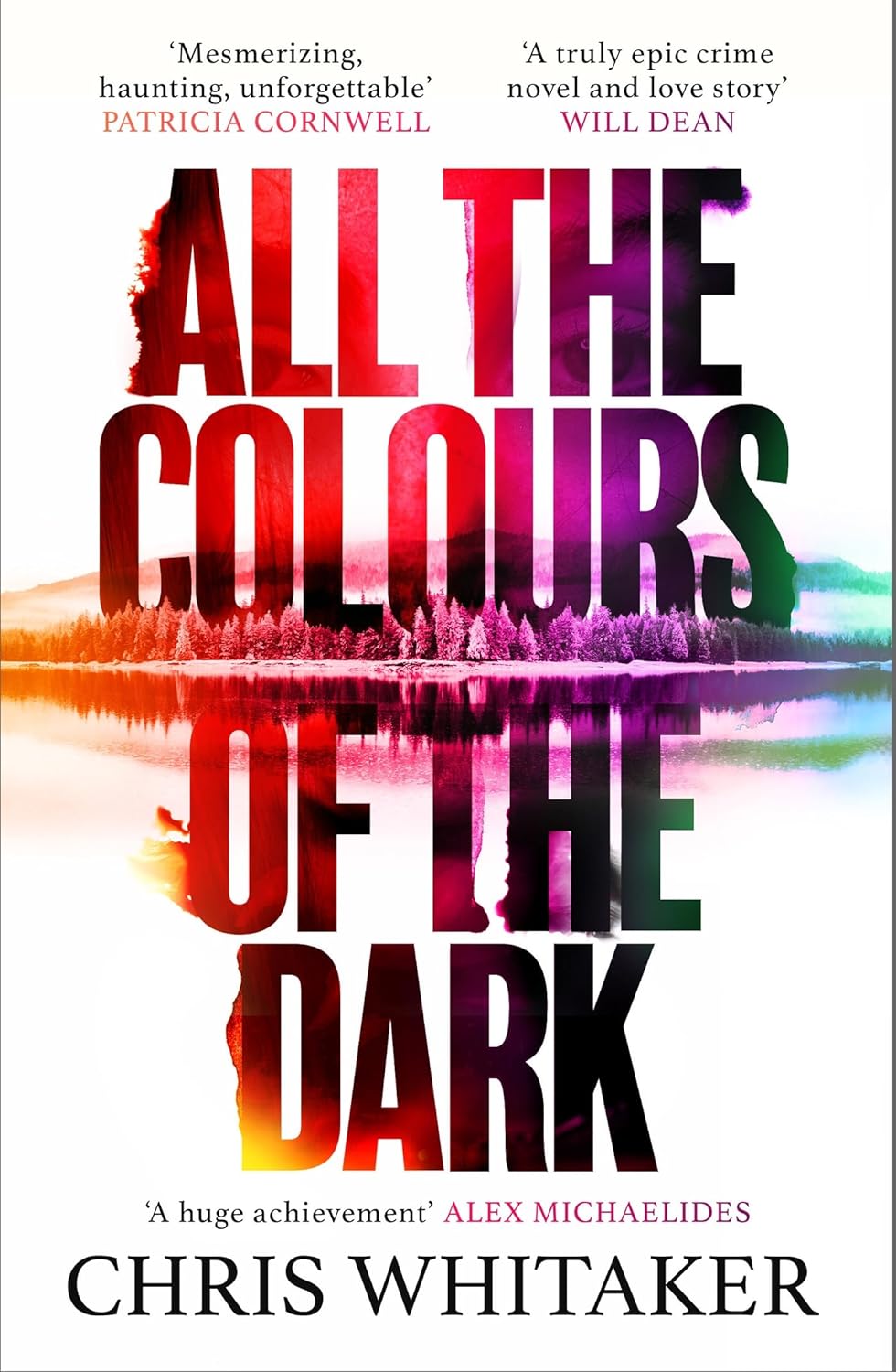All the Colors of the Dark
Chapter 239
byChapter 239 opens with Patch wandering through the heart of a town he once knew intimately, his footsteps echoing faintly against the pavement of Main Street. Everything around him feels hauntingly familiar—storefronts still boasting green awnings, the red brick buildings standing strong despite the passing years. His thoughts drift to the past, where a whisper of a voice once painted whimsical pictures in his mind: the moon slipping beneath the water, woods laced with silver, and yellow bricks leading somewhere beyond reach. These fragments of memory follow him like shadows, blurring the line between what was and what still might be.
Pausing near the town square, Patch notices the old gold-faced clock, still poised at the same minute, as if time itself had refused to move on from when he last left. Across the street, the Moon Under Water Diner beckons with its familiar glow. He steps inside, the bell over the door jingling softly, and slides into a booth near the window. The scent of coffee and fried dough wafts through the air, grounding him in the present. A waitress approaches—Katie—with tired eyes and a kind smile, her hair tied loosely and her voice casual as she takes his order. Their exchange is simple at first: a cup of black coffee, no sugar, no cream.
Patch watches the townspeople through the glass, each one immersed in their routine—some headed toward the bakery with loaves wrapped in waxed paper, others hauling crates into the market. There’s something grounding about these movements, though his own restlessness makes him feel like an outsider. Katie breaks his reverie with a question that seems too direct to be random. “You lost?” she asks, raising a brow. He hesitates, caught off guard. “Not sure,” he says truthfully. There’s a heaviness behind his words, one that doesn’t need further explanation. He’s not lost geographically, but emotionally adrift.
Their conversation takes on a lighter tone as she jokes about how men never stop to ask for directions, recalling how her father once refused to pull over even after two hours off course. The anecdote brings a brief smile to Patch’s lips. He chuckles and admits that stubbornness might be a universal trait. But beneath the surface of their casual banter is a mutual understanding—an unspoken acknowledgment of what it means to look for something without knowing exactly what it is.
When Katie asks what brought him to town, Patch shares the image that’s been imprinted in his mind for years. A white house, aged but regal, with a driveway shaded by old trees and grass so green it almost glows. He adds details that only someone who had stood on its porch would know: the faint squeak of the wooden steps, the butterfly weeds blooming near the fence, and the swing that once hung from the front tree. Katie’s eyes narrow slightly as she processes his words. Something flickers across her face—recognition mixed with caution.
Patch senses the change instantly. For a heartbeat, the air thickens between them. “Do you know it?” he asks softly. Katie pauses, her expression unreadable. Then she nods, slowly but surely. “Yeah,” she replies. “I know the house.” It’s a simple confirmation, but one that shifts the entire moment. Patch leans back slightly, processing what this means. After all the roads traveled and questions unanswered, he’s closer than he’s ever been.
The scene ends with more than just recognition. There’s possibility blooming beneath the surface, suggesting the house is more than a place—it’s a tether to something deeper: identity, connection, closure. Through Katie’s acknowledgement, a door begins to open—not just to a location, but to a history waiting to be faced. For the first time in a long while, Patch doesn’t feel like he’s walking blind. The path forward is no longer just a dream; it’s a memory coming back into focus.


0 Comments